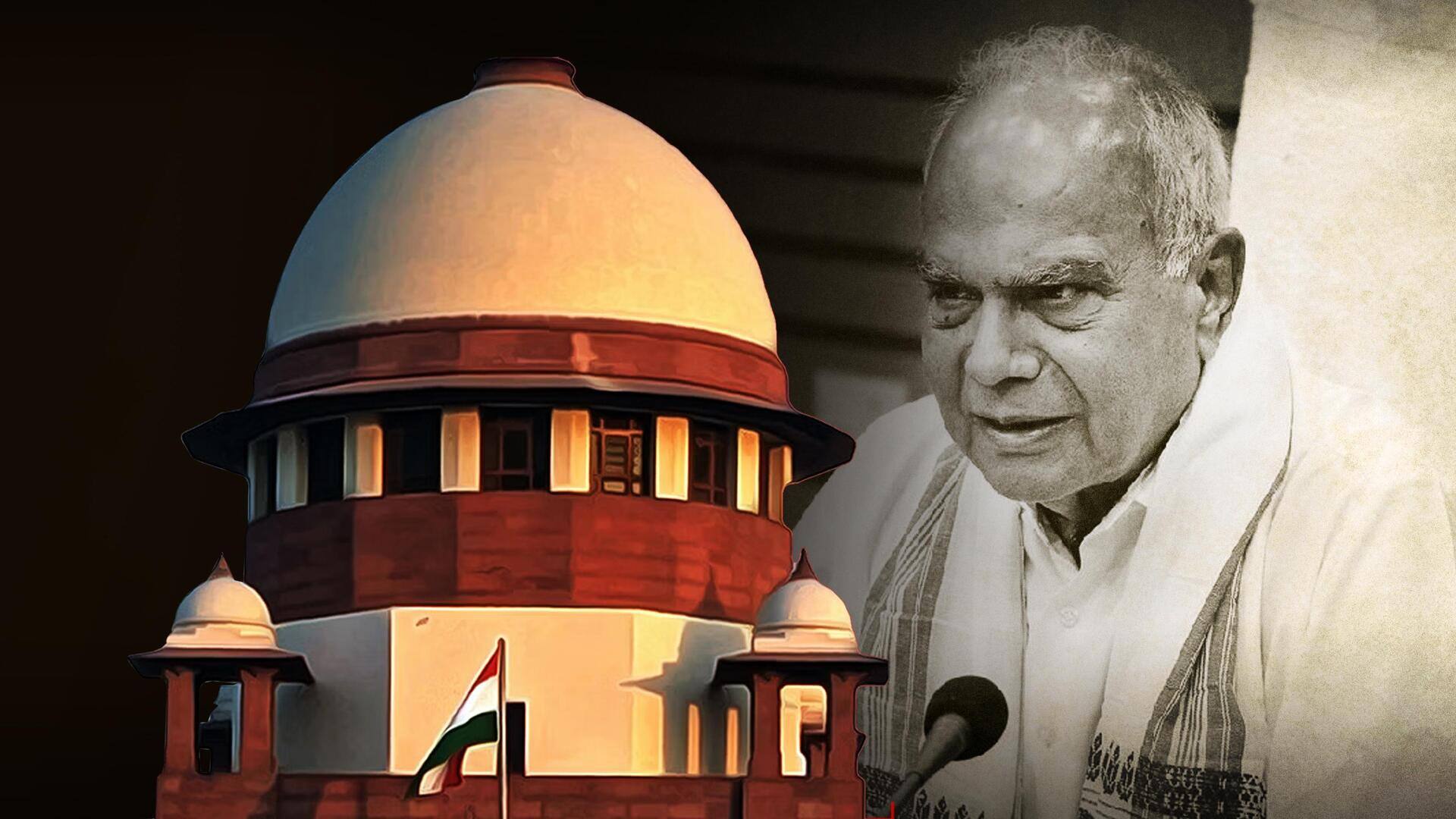
Governors need soul searching: SC on delay in clearing bills
What's the story
The Supreme Court said on Monday that governors must stop the trend of acting on legislature-passed bills only when state governments approach the court.
Expressing disappointment that state governments are forced to approach the top court, it said, "A little bit of soul searching is needed from governors, and they must know that they are not elected representatives of the people."
The SC was hearing the Punjab government's petition against the delay by Governor Banwarilal Purohit in approving bills.
Context
Why does this story matter?
The top court's remarks highlight the trend of disputes between governors and state governments ruled by parties not aligned with the Bharatiya Janata Party (BJP), which rules the Centre.
Critics dub governors as the Centre's instruments to interfere and indirectly control the state governments ruled by opposition parties.
While the Indian Constitution allows a governor to exercise their functions at their discretion, Article 163 states that the function should be based on the advice of the state's council of ministers.
Details
CJI Chandrachud calls for introspection by governors, CMs
The SC bench, including Chief Justice of India (CJI) DY Chandrachud and Justices JB Pardiwala and Manoj Misra, noted a similar dispute happened in Telangana as well.
It directed Solicitor General (SG) Tushar Mehta, appearing for Purohit, to present an updated status on the action taken by the governor regarding the bills sent by the Punjab government.
It posted the matter for hearing on Friday.
Mehta said Purohit has already taken action on the bills and called the petition unnecessary.
Facts
What the dispute is about
Purohit reportedly withheld assent to three money bills that were slated for discussion in the Punjab Assembly during the extended Budget Session on October 20-21.
Purohit said the session extension was "bound to be illegal," following which the Aam Aadmi Party (AAP)'s Punjab government limited the session to October 20.
Apart from this, four bills passed in the session held on June 19-20 were also pending approval, which the governor called "patently illegal," reported Live Law.
What Next?
Unprecedented situation in constitutional history: Singhvi
Senior Advocate Abhishek Manu Singhvi, representing the Punjab government, argued that it was unusual for a governor to leave seven bills pending, including fiscal and affiliated college bills.
He found the governor's argument that the session had been adjourned sine die and needed restarting "strange."
Singhvi said "prorogation" allows the assembly's speaker to reconvene and that this situation was unprecedented in constitutional history.
Insights
Keeping assembly alive without adjournment astonishing: SG
Mehta told the bench that Purohit acted appropriately on all bills and made necessary decisions.
He agreed with Singhvi's observation about astonishing events in constitutional history, alleging it meant keeping the assembly alive without proroguing or adjourning it, allowing for power abuse and privilege claims.
Purohit reportedly approved two of three money bills on Wednesday (November 1). However, he declined to endorse them in an October 19 letter.
Notably, the governor's approval is necessary to present money bills in assembly.